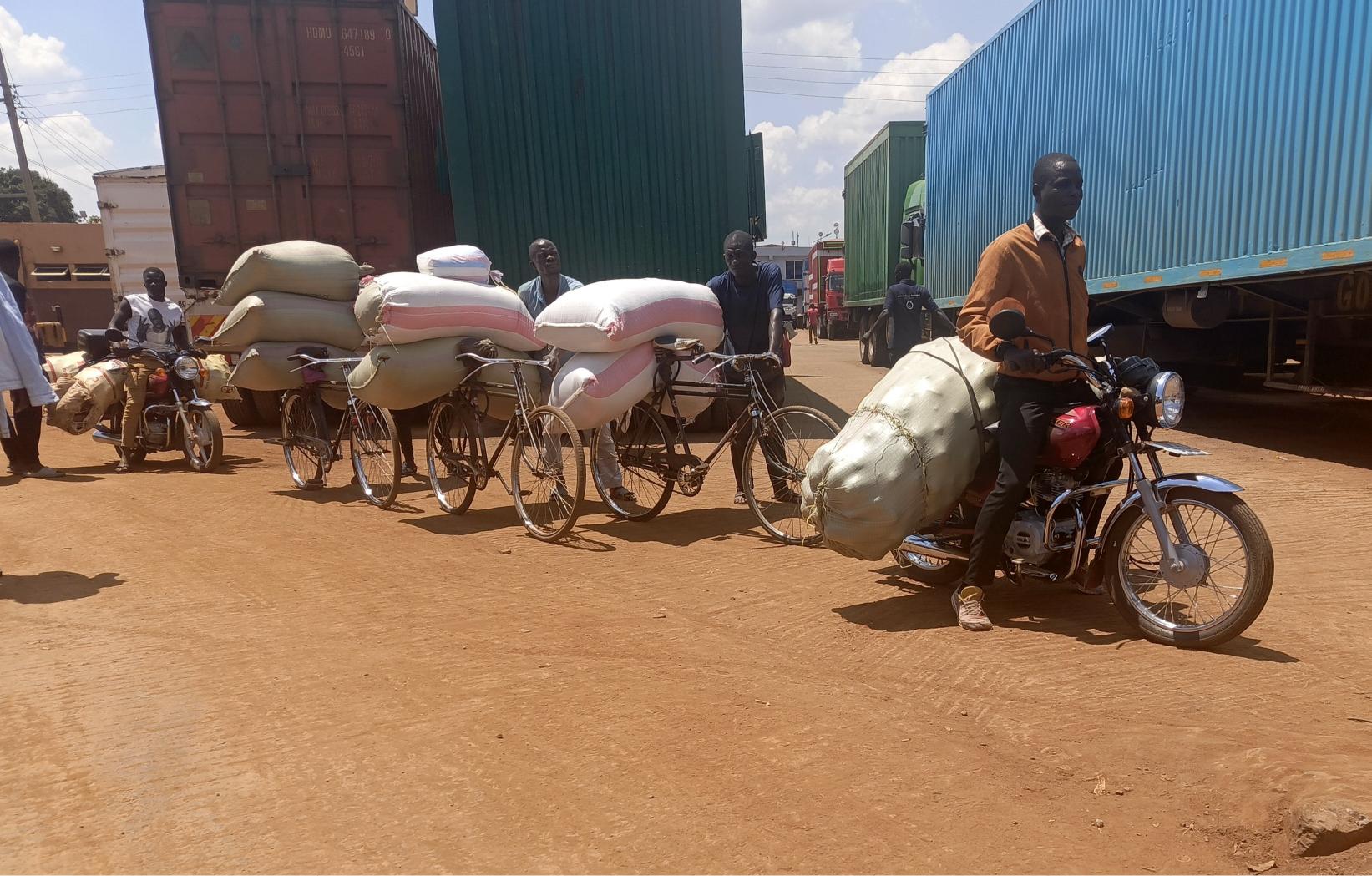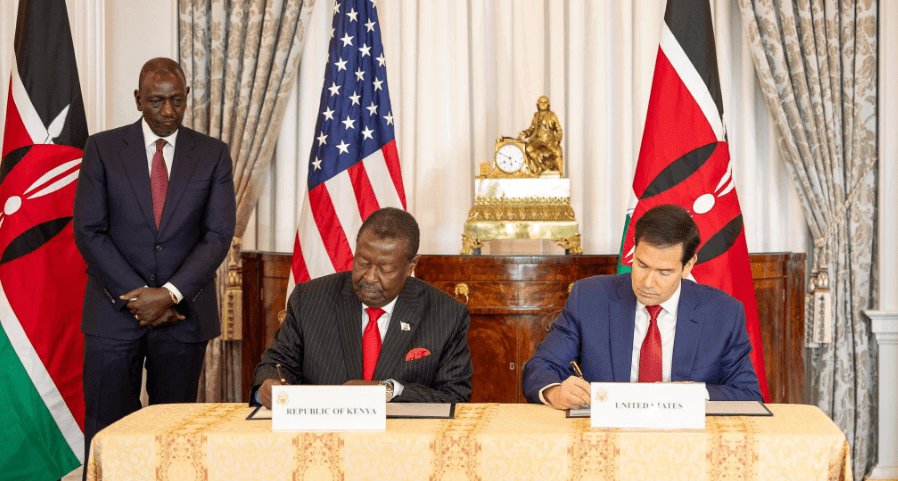
Traders at the Busia border crossing goods from Jinja, Uganda to Busia in Kenya/AGATHA NGOTHO.
Agroecology experts across the East African Community (EAC)
are calling for the creation of dedicated market spaces and better facilities
to support the trade of agroecological products within the region.
They say improving market infrastructure, including storage facilities and transport systems, along with harmonising standards across borders, will make it easier for smallholder farmers to sell their produce fairly.
The experts also believe these investments are essential for strengthening food sovereignty and building resilient local food systems.
In a declaration issued in Jinja, Uganda, the experts and stakeholders also urged the strengthening of producer and trader associations to enhance collective marketing, knowledge exchange and advocacy.
The Jinja Declaration was adopted during the Regional Multi-Stakeholder Conference on Advancing Agroecological Produce Cross-Border Trade in the East African Community.
The meeting brought together participants from Uganda, Kenya, Tanzania, Rwanda, Burundi, the Democratic Republic of Congo and South Sudan.
Among the key recommendations was increased investment in cold storage and logistical infrastructure to support agroecological enterprises, as well as improving financial inclusion through regional currency harmonisation and fair mobile money systems.
The participants also called for mutual recognition of Sanitary and Phytosanitary standards across partner states and the integration of agroecology into EAC trade, climate and agricultural policies.
Africa Kiiza, a consultant and agroecology expert, pointed out the urgency of transforming food systems in response to climate change, biodiversity loss and rising inequality.
“The declaration positions agroecological trade as a pathway toward sovereignty, justice and resilience in the region,” he said.
They affirmed that Africa’s resilience and food sovereignty are rooted in the heritage of its people, seeds and soils.
“Agroecological trade honours this heritage by centering farmers, women, youth, and indigenous communities in regional economies,” the declaration stated. “By promoting local production, ecological farming and intra-regional markets, Africa can reduce dependency on imports and reclaim food sovereignty.”
Kiiza however noted that agroecological trade continues to face structural barriers, including high tariffs, multiple fees, bureaucratic delays and complex certification processes for SPS standards. Such challenges disproportionately affect small-scale producers, particularly women.
“These barriers are not merely technical but structural and political,” he said. “They are rooted in unequal power relations and the dominance of industrial agriculture.”
He added that aligning EAC trade and agricultural policies with agroecological principles could create regenerative food systems that sustain both people and the environment.
The declaration called for the elimination of non-tariff barriers, streamlined customs procedures, expanded One Stop Border Posts and policy reforms that empower smallholders, women and youth.
The participants pledged to continue dialogue and advocacy to ensure agroecological trade becomes central to regional development and integration.
“We call upon all actors including governments, civil society, private sector and communities, to join this journey toward a just, inclusive and sustainable East Africa,” the Jinja Declaration stated.
















